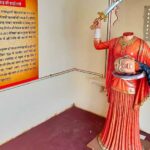Monsoon Madness: Protecting Yourself from Fungal Infections in the Rainy Season

The monsoon season brings relief from the scorching heat and rejuvenates the environment with its refreshing showers. However, along with the pleasant weather, the rainy season also brings an increased risk of fungal infections. The combination of moisture, humidity, and warmth creates an ideal breeding ground for various types of fungi, making us susceptible to skin and respiratory infections. In this blog post, we will explore six expert-recommended tips to help you prevent fungal infections during the monsoon season.
- Keep Yourself Clean and Dry: Maintaining good personal hygiene is crucial to prevent fungal infections. Take a shower with warm water and a mild antifungal soap regularly. Pay extra attention to areas prone to moisture, such as armpits, groin, and feet. After showering or any exposure to rain, make sure to dry your body thoroughly, especially the skin folds, as dampness promotes fungal growth.
- Wear Breathable Fabrics: During the monsoon season, choose clothing made of breathable fabrics like cotton or linen. These materials allow better air circulation and help absorb sweat, preventing the buildup of moisture on your skin. Avoid wearing tight or synthetic clothes that trap moisture and heat, as they can create an environment favorable for fungi to thrive.
- Keep Your Feet Dry: Feet are particularly vulnerable to fungal infections during the monsoon. To keep your feet dry, always wear open-toed or well-ventilated shoes that allow air circulation. Avoid wearing wet shoes or socks for an extended period, as they can promote fungal growth. If your feet get wet, dry them thoroughly and consider using antifungal foot powder or spray.
- Maintain Clean and Dry Nails: Fungal infections can affect your nails, leading to discoloration, brittleness, and thickening. Trim your nails regularly and keep them clean and dry. Avoid applying nail polish continuously, as it can trap moisture and contribute to fungal growth. If you notice any signs of a fungal infection, consult a dermatologist for appropriate treatment.
- Avoid Walking Barefoot: Walking barefoot during the monsoon, especially in public places, can expose your feet to fungal infections. Wear waterproof sandals or slippers when you’re outside to protect your feet from contaminated water and surfaces. Additionally, avoid sharing footwear with others to minimize the risk of fungal transmission.
- Maintain a Clean and Dry Environment: To prevent fungal infections at home, ensure proper ventilation to reduce humidity levels. Use dehumidifiers or exhaust fans in areas prone to dampness, such as bathrooms and basements. Regularly clean and dry damp surfaces, including shower curtains, bath mats, and window sills. Wash and disinfect your clothes, towels, and bed linen frequently to prevent fungal spores from thriving.
By following these expert-recommended tips, you can significantly reduce the risk of fungal infections during the monsoon season. Remember to maintain good personal hygiene, wear breathable fabrics, keep your feet dry, and create a clean and dry environment. If you experience persistent symptoms or suspect a fungal infection, consult a healthcare professional for proper diagnosis and treatment. Enjoy the monsoon season while prioritizing your health and well-being.
Picture Courtesy: Google/images are subject to copyright








